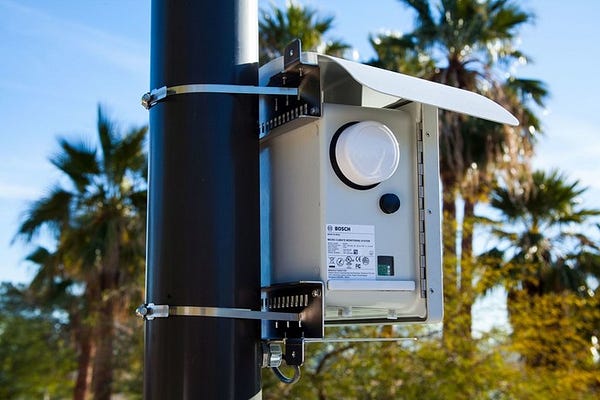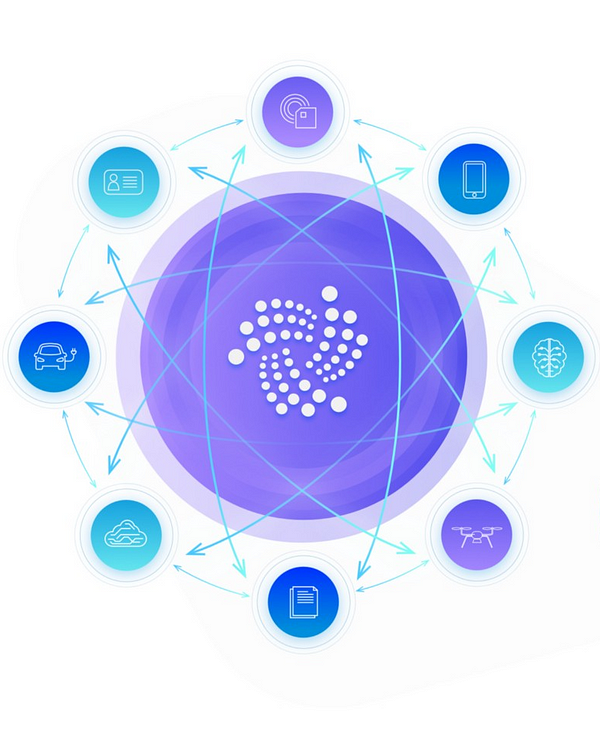› Forums › General › News (General) › IOTA: possible BOSCH usecases for post blockchain Distributed ledger
Tagged: Blockchain_G8, UseCase_G14
- This topic has 0 replies, 1 voice, and was last updated 6 years, 9 months ago by
Curator 1 for Blogs.
-
AuthorPosts
-
-
January 12, 2018 at 12:31 pm #21813
[Bosch on post blackchain distributed ledger IOTA]
As we have seen already, BOSCH Venture Capital has bought a “significant amount of IOTA tokens”. Although “a bigger unveil (one of the IOTA partnerships)” at the CES had been postponed, it was still interesting to watch BOSCH’s tweets from their press conference: This article tries to show why IOTA’s technology perfectly fits in the company’s plans.
Note: This has not been confirmed by the IOTA Foundation, it’s just my own thoughts so please consider it as such.
Smart cities
Smart cities will be huge topic in the near future, BOSCH’s tweet says it all:
Las Vegas alone has announced a plan to invest $500m over the next seven years smart city infrastructure. In Bay area a beacon project has been launched which is supposed to save over $8m across 15 years simply by using 5000 smart street lights.
Bosch sensors are the eyes and ears of the connected city. In this case, its brain is our software.(Mike Mansuetti, Preseident of Bosch North America)
Furthermore it was stated that by 2020 all electronic products will be web-enabled. As you can imagine, this will result in a incredible amount of data that will be set free. IOTA’s scaling capabilities and speed enable it to be the base-layer of all these transactions of information. In the following, I shall give an overview of some usecases which could technically be done using IOTA infrastructure.
Climate monitoring
The idea here is to analyze the air quality, humidity and pollen concentration in order to improve the overall quality by putting measures into place if necessary. The product to gather the information is already working and has received the CES 2018 Innovation Award: The Climo.

Several of these Climo boxes were deployed in Las Vegas right before the CES in order to show the capabilities to the conference attendees.
Of course, the collected data can be “faked”, for example by positioning the boxes in a very “green/healthy” part of the city. However, the idea is to collect data from so many points that the overall number of information sources will prevent biased results. Moreover, you could also only focus on a specific area of the city in order to compare the data to other parts of the city.

IOTA’s network called “tangle” would be the link between all the sensors.
IOTA’s tangle would be the layer on which all of these information pieces are exchanged. To make this clearer: Imagine hundreds of Climos in Las Vegas sending their data every second to the IOTA market place = real time information. A sophisticated blockchain might be able to handle this, agreed. And such a blockchain might come up with a marketplace, agreed. But what if hundreds of thousands of residents buy the technology for their own roof because they want to make good money by selling the data to air-quality-improving-companies’ R&D branches? Right, that’s hundreds of Climos +hundreds of thousands homes sending their data every second over a public ledger! And this is why IOTA is needed because it offers the speed, the scalabilty and it has no transaction fees!
Collecting data about air quality can be done easily by companies, municpalities as well as by individuals. The incentive is to sell that data on a marketplace which in turn can be used by corporates to build products which will improve air quality again. It’s a win-win situation.
Community-based parking
Have you ever been in a city trying desperately to find a parking spot? BOSCH thought about this problem and their solution is simply brilliant:
Cars driving past a parking space recognize spaces via sensors, and connection hardware and drivers receive the parking space information in real-time. They are then quickly and easily navigated towards an empty space. (link)
Watch this short video to get the idea:
Again, this is a lot of data: Every car sensors possible parking spots, transmits the data in real-time and the exact same data needs to be transfered to all the cars looking for a parking spot. Of course, this could be perfectly combined with self-driving vehicles: You just hop off at the store where you want to go, the car finds itself a spot to wait (or is used for other purposes in the meantime) and comes back to you once you are done.
This sounds rather futuristic and utopian, but BOSCH has already equipped 1.5m cars with their IoT software. 20 US cities (such as Miami, LA and Boston) will offer this amazing technology in 2018!
Again, this is so much data be produced for one city alone — but if it is successful, the whole world will want this technology and that means an incredible amount of data which needs to be processed.
Since IOTA was tailored exactly for IoT cases like that, all the data could be transfered in real-time without any fees!
One could also imagine a usecase like this: Before starting your trip in the car you reserve a free parking spot for a certain amount and can be sure to get this one (e.g. right in front of your destination). The possibilities are endless!
Other usecases
I think you got the gist so far: It’s a lot of information which can be used (if processed in real-time) to help individuals have a better/smarter/… life. The following are just some ideas how the technology can help us and each of these usecases would perfectly be doable using IOTA’s tangle as a base-layer:
-
-
AuthorPosts
- You must be logged in to reply to this topic.
